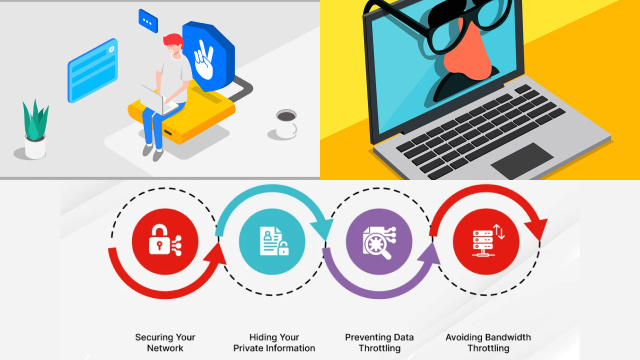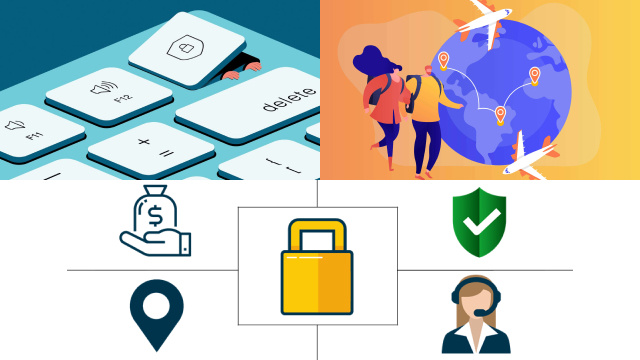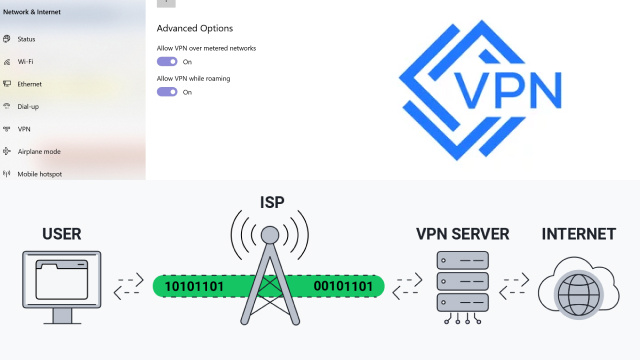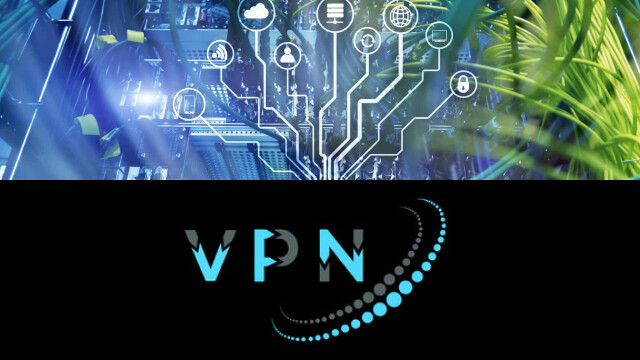Introduction: The Importance of VPNs on School Computers
In today’s digital age, schools are increasingly relying on technology to support their educational programs. As a result, students and teachers are accessing sensitive information on school computers more than ever before. However, with the rise of cyber threats, it’s become essential for schools to take measures to protect their network and the data they handle. This is where virtual private networks (VPNs) come in.

VPNs create a secure and encrypted connection between a school computer and the internet, preventing unauthorized access and keeping sensitive data safe. They also offer the added benefit of allowing users to access websites and online resources that may be blocked by the school’s network filters.
In addition to safeguarding school networks and data, VPNs can also protect students’ privacy. When students connect to the internet through a VPN, their online activity and personal information are shielded from prying eyes, which is especially important given the increasing number of data breaches and cyberattacks.
Overall, VPNs are an important tool for ensuring the security and privacy of school computers and the information they handle.
Check School Policies and IT Restrictions
When it comes to using school computers and accessing the internet, it’s essential to be aware of the school’s policies and IT restrictions. These policies are put in place to ensure the safety and security of both the school network and the students who use it.
Before using school computers, students should take the time to familiarize themselves with the school’s policies regarding internet use. This may include rules on which websites can be accessed, how long students can use the computers, and what types of files can be downloaded.
In addition, schools may have IT restrictions in place that limit access to certain websites or prevent the installation of certain software programs. These restrictions are put in place to prevent security breaches and ensure that the school’s network runs smoothly.
It’s important to follow these policies and restrictions, as violating them can lead to disciplinary action and may even compromise the security of the school’s network. By adhering to these rules and regulations, students can help maintain a safe and secure computing environment for everyone.
Choose a Reliable VPN Service
With the growing importance of online security and privacy, many people are turning to virtual private network (VPN) services to protect their internet activity. However, not all VPNs are created equal, and it’s important to choose a reliable and trustworthy provider to ensure maximum protection.
When selecting a VPN service, it’s important to consider factors such as the provider’s reputation, the quality of their encryption, and the number of servers they offer. A reputable VPN provider will have a proven track record of keeping their users’ data safe and secure.

In addition, it’s important to choose a VPN service that offers strong encryption protocols and a large number of servers to ensure that users can connect to a server that’s both fast and reliable. A good VPN provider will also offer customer support in case any issues arise.
Overall, choosing a reliable VPN service is crucial to maintaining online privacy and security. By doing some research and selecting a trustworthy provider, users can ensure that their internet activity is kept safe and secure from prying eyes.
Downloading and Installing the VPN Software
Once you’ve selected a reliable VPN provider, the next step is to download and install the VPN software on your device. This process can vary depending on the provider you choose, but there are some general steps that most users will need to follow.
First, you’ll need to create an account with the VPN provider and select a subscription plan that meets your needs. Once you’ve done this, you can usually download the VPN software directly from the provider’s website.
After downloading the software, you’ll need to run the installer and follow the prompts to install the VPN on your device. This typically involves selecting a destination folder and agreeing to the terms and conditions of the provider.
Once the installation is complete, you’ll need to log in to the VPN software using the account credentials you created earlier. From there, you can select a server location and connect to the VPN to start browsing the internet securely and privately.
Overall, downloading and installing VPN software is a straightforward process that can be completed in just a few minutes. By taking the time to set up a VPN, you can ensure that your online activity is protected and kept private from prying eyes.
Configuring Your VPN Settings
Once you’ve downloaded and installed your VPN software, the next step is to configure the settings to optimize your VPN experience. While most VPN providers offer default settings that work well for most users, there are some customizations you can make to improve your VPN’s speed and security.
One important setting to configure is your encryption protocol. While most VPN providers offer a default encryption protocol, you may want to switch to a stronger protocol if you’re concerned about security. This can help ensure that your data is kept safe from prying eyes and potential cyber threats.

Another setting to consider is your VPN’s server location. By selecting a server location that’s closer to your physical location, you can improve your VPN’s speed and reduce latency. Some VPN providers also offer specialized servers for specific purposes, such as streaming or torrenting.
Overall, configuring your VPN settings can help improve your online security and ensure a better VPN experience. By taking the time to customize your settings, you can enjoy a fast and secure browsing experience while using your VPN.
Troubleshooting VPN Connection Issues
While VPNs are a great tool for improving online security and privacy, sometimes users may experience connection issues. These issues can range from slow internet speeds to complete disconnections from the VPN server.
One common cause of VPN connection issues is a weak internet connection. If your internet connection is unstable or slow, it may be difficult to maintain a stable connection to the VPN server. In this case, you may need to upgrade your internet plan or switch to a different internet provider.
Another common cause of VPN connection issues is firewall or antivirus software blocking the VPN connection. In this case, you may need to temporarily disable these programs or add the VPN to their list of exceptions.
If you’re still experiencing VPN connection issues after trying these solutions, it may be helpful to contact your VPN provider’s customer support team. They can offer personalized assistance and help you troubleshoot any issues you may be experiencing.
Overall, troubleshooting VPN connection issues can be frustrating, but with some basic troubleshooting steps and the help of your VPN provider, you can get back to browsing the internet securely and privately in no time.
Staying Safe and Secure While Using a VPN on School Computers
Using a VPN on school computers can be a great way to ensure online privacy and security. However, it’s important to take additional steps to stay safe and secure while using a VPN.
One important step is to keep your VPN software up-to-date with the latest security patches and updates. This can help ensure that your VPN is protected against any potential security vulnerabilities.
Additionally, it’s important to avoid downloading any suspicious files or clicking on suspicious links while using your VPN. These could potentially compromise your device and put your online security at risk.
Finally, it’s important to follow any school policies or guidelines related to using VPNs on school computers. Some schools may have specific restrictions or guidelines related to VPN use, and it’s important to follow these to avoid any potential disciplinary action.
Overall, by taking these steps and using a reliable VPN service, you can ensure that your online activity is kept safe and secure while using school computers.
Conclusion: Enjoying the Benefits of a VPN on Your School Computer
In conclusion, using a VPN on your school computer can provide numerous benefits, including improved online privacy, security, and access to restricted content. By encrypting your internet connection and hiding your IP address, a VPN can help ensure that your online activity remains private and secure.
When using a VPN on your school computer, it’s important to choose a reliable VPN provider and follow any school policies or guidelines related to VPN use. Additionally, taking steps to keep your VPN software up-to-date and avoiding suspicious files and links can further enhance your online security.

While there may be some potential challenges, such as troubleshooting connection issues or configuring settings, the benefits of using a VPN on your school computer far outweigh the risks. With a little bit of effort and the right VPN provider, you can enjoy a fast and secure browsing experience while using your school computer.